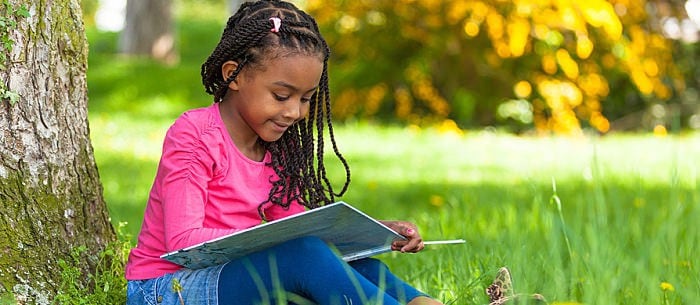Your 5-year-old has a lot to say! The year following the landmark fifth birthday is eventful, and you’ll discover her speech and language skills growing by leaps and bounds as she reaches many 5-year-old milestones. But she’s doing so much more, too. Your child is becoming more independent, starting kindergarten and making friends. She’s becoming more aware of the world and is using her ever-growing vocabulary and grammar skills to communicate with peers, to ask lots of questions and to offer countless opinions and observations.
Here’s a look at what you can expect during this year:
And read
our guide to developmental milestones for kids
.
More Words, More Talking, More Language Skills
Between her fifth and sixth birthdays, your child’s vocabulary grows, and her use of language becomes stronger and more adaptable. For example, she understands different terms for time, including yesterday, today, tomorrow, now and later. Also keep an eye (and ear) out for her new grammar skills. “A 5-year-old is generally using future tense in addition to past tense,” says Virginia McGoey-Radshaw, a speech-language pathologist at Connecticut Children’s Medical Center.
Your 5-year-old will begin to use increasingly descriptive language to explain or ask questions, and she’ll begin putting things into her own words. She’ll also begin to notice when simple sentences don’t make sense, opening the door to lots of wordplay. McGoey-Radshaw says you should expect 5- to 6-word sentences from a 5-year-old, and as she gets closer to age 6, her sentences will get longer.
Now is the time when your 5-year-old will get ready to read and write solo! She will try to write the letters of the alphabet, her name and other words she uses often, according to the U.S. Department of Education. Her writing probably won’t be very legible, but try to decipher it. Children this age love being read to, and your little one may even “read” aloud a book she has memorized. She also might retell stories and start to write her own tales. Look for skills like recognizing letters and corresponding sounds, matching spoken words to written words and understanding rhyming.
Another one of the important 5-year-old milestones is being able to use most speech sounds correctly, McGoey-Radshaw says, with the possible exceptions of V, , TH, CH, , , and . By the end of the fifth year, your child should generally master all sounds.
Listening and Following Directions
Getting ready for school will be easier as your child masters the ability to follow complex instructions — for instance, “Finish breakfast, brush your teeth and then get your backpack.”
Not only is this great news for you, it’s also a big cognitive leap. “Following multistep directions is an important skill that requires paying attention to language, comprehension of the direction, working memory — to ‘store’ the direction — problem-solving if the command is forgotten or needs to be altered and the actual execution of the direction,” says Jennifer L. Maietta, a pediatric speech-language pathologist at MassGeneral Hospital for Children. Kids this age can also be expected to take turns talking and listening.
How Can You Help?
One of the simplest ways to boost your child’s language development is through everyday conversation about what she’s doing or other things that interest her. Specifically, McGoey-Radshaw recommends talking with your child when you both can focus and trying to stay on an activity for at least 15 minutes. “Ask questions that encourage her to expand and describe,” she says. “Ask your child questions about her day. Make these questions open ended.”
“Even though many children in this age range are learning to read themselves,” says Maietta, “it is critical to keep reading aloud to them to continue to expose them to higher-level vocabulary, more sophisticated sentence structures and more complex world ideas.” Pay attention to her interest level and make reading fun by changing your voice for each character.
Again, always keep the conversation going. McGoey-Radshaw says, “When reading, ask questions about what has been read and give them an opportunity to ‘tell back the story’ in their own words.” Enjoy this time together as you “use your words” to educate, entertain and encourage your 5-year-old!
And check out this
Overview of Milestones for 5 Year Olds
.
In addition to being a writer, editor and web developer, Nancy J Price is the mother of four children, including one with a speech delay and autism. A California native, she now lives with her family in Arizona and writes for several sites, including Myria.com.
* This article is for general informational purposes only. It is not intended nor implied to be providing medical advice and is not a substitute for such advice. The reader should always consult a health care provider concerning any medical condition or treatment plan. Neither Care.com nor the author assumes any responsibility or liability with respect to use of any information contained herein.






